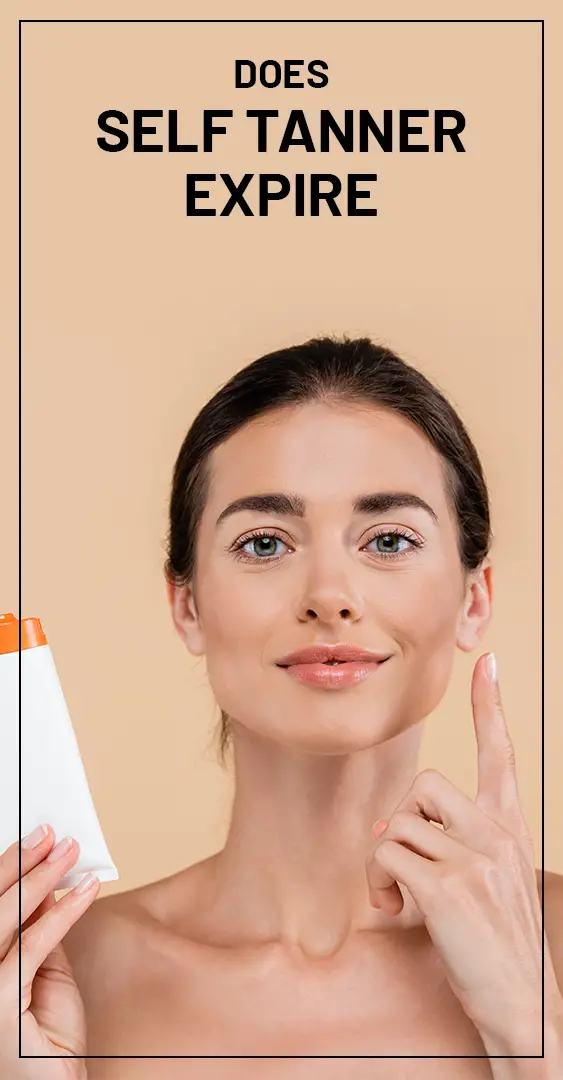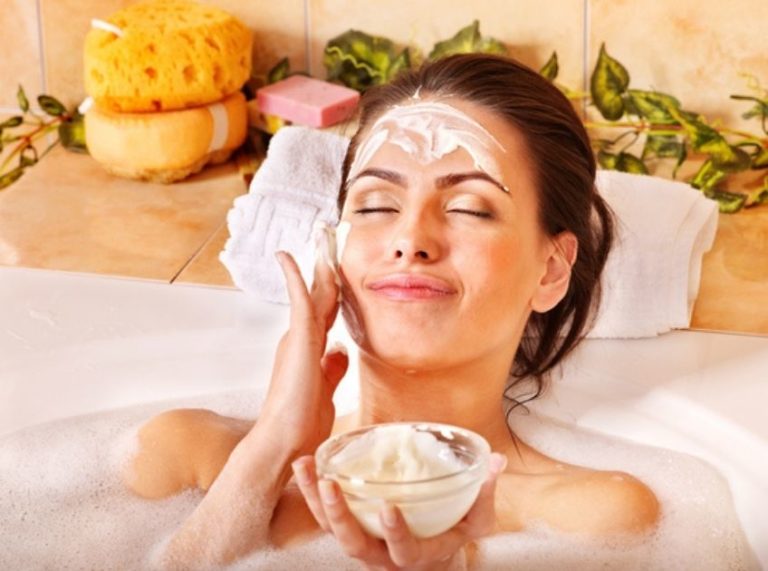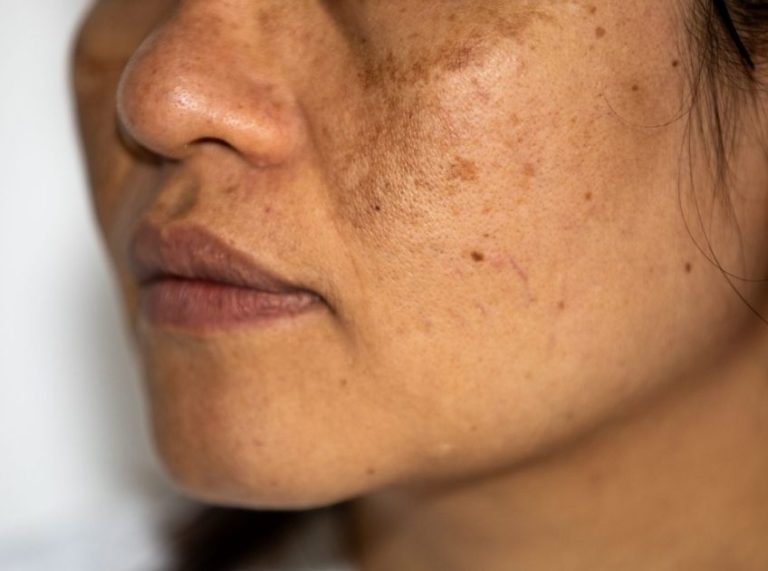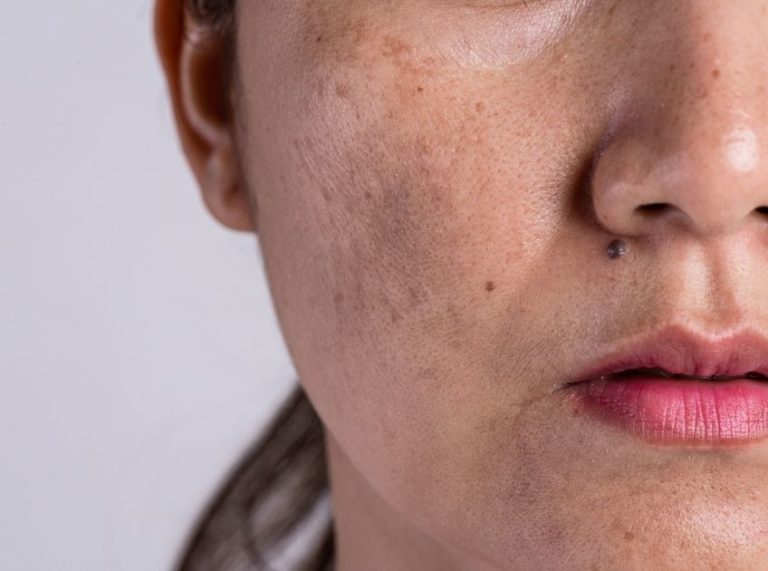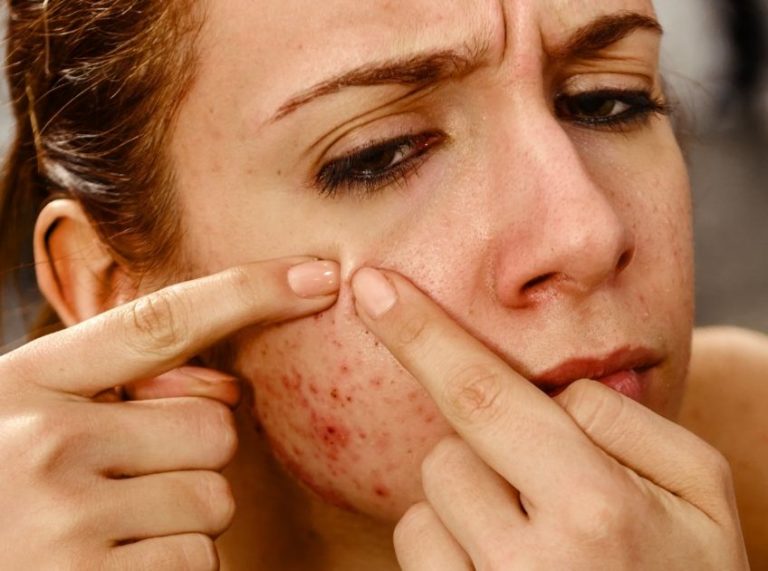
Important: This article is for informational purposes only. Please read our full disclaimer for more details.
Self-tanners are designed to give you a dazzling tanned look without sitting under the sun for hours. They create a natural-looking and flawless tanning, due to which people often opt for them. If you have found the right tanning product for your skin, and want to buy a large bottle of it, think about its shelf-life before investing. It is because self-tanners have an expiration date. When it comes to self-tanners, some common questions that revolve around the mind are
- Are self-tanners safe?
- Do self-tanners expire?
- Are self-tanners effective even if they have been kept for a long period?
To answer all your queries, we have compiled a detailed guide on self-tanners to help you know whether you should use an expired self-tanner or not.
Do Self-tanners Go Bad After Some Time?

When it comes to beauty products, their expiration date is the major concern among people. Just like any other makeup product, self-tanners also come with an expiration date, after which they become ineffective. Most self-tanners have a shelf life of 12 months. Even though they are non-toxic and you can use them after a year, the result would not come as you desire. In fact, the skin may get blemishes and marks. Once a self-tanner expires, the skin doesn’t absorb it, and you will not get the kind of tan you want. Besides avoiding an expired self-tanner, you should always wear high-quality sunless tanners to ensure a wonderful streakless tan that lasts longer. Apart from using a self-tanner, you can also apply a tanning mint to make the process easier. While this is the thumb rule, different formats of self-tanner may show their usefulness differently. Some common formats of self-tanners are
- Mousse: Self-tanner in a sealed container with a pump comes under this category. Since they get minimum exposure to air, they may stay effective for longer than a year.
- Lotions: Self-tanners coming in lotion form get exposed to air maximum- everything you open the bottle. Therefore, such self-tanners have a small shelf-life.
- Towelettes: Tanning towels or towelettes are a popular choice as they are convenient. However, they also expire after a year. If towelettes are kept open and exposed to air, they may expire quickly.
What Makes Self-tanners Lose Their Effectiveness?
Usually, a self-tanner comes with a shelf-life of six to nine months. If you use a spray tanner with a pump, the shelf-life may increase up to 12 months as it consists of an enclosed lid that is tightly sealed. As a bottle of self-tanners opens, the liquid component starts evaporating, and as it evaporates, the DHA content becomes denser. Dense DHA doesn’t lead to a good tan, and that’s how the product loses its effectiveness. The market is flooded with self-tanners, so make sure you buy a good one to get the best result.
Are Self-tanners Safe?

Compared to sunbathing or sitting under the harmful sun’s rays for longer hours, self-tanners are safer options. Dermatologists often recommend using a self-tanner instead of sitting under the sun for hours. The active ingredient of self-tanners is DHA, which causes the skin to darken. Since DHA is approved by the Food and Drug Administration (FDA), there is no harm in using it to get the desired tan. You can find self-tanners as a spray, lotion, cream, powder, and pills. The result of these self-tanners lasts only a few days until the outer layer of your skin or dead skin sheds. As the dead skin sheds, the color wears off as well. To keep the tan, it is advised to reapply the self-tanner after 3-4 days. While buying self-tanners, go for products formulated with ingredients that nourish the skin. Such products will tan your skin, keeping it well-nourished and moisturized.
How To Know If A Self-tanner Has Expired?
While some self-tanners come with an expiration date, some should be used within specific days from opening the bottle. It becomes easy to know the expiration date when it is mentioned; however, for the latter, you need to take note of the date as you open the self-tanner.
To check the status of your product, you can do the following tests
1. Check The Color
A visual test is the best way to know whether the self-tanner has expired. If it appears green, it could be because certain ingredients have expired due to exposure to heat or air.
The major component of self-tanners is DHA, dihydroxyacetone that darkens the skin and gives it a golden bronze glow. DHA turns green when it is degraded. It usually happens when a self-tanner consists of a bronzer.
2. Check The Consistency
Self-tanners consist of oils and other ingredients that, over time, separate. It changes the consistency of the product. If the self-tanner appears lumpy, too thick, or watery, it may indicate that it has expired.
3. Check The Smell
Since self-tanners contain oil, they may expire after some time. You can know this by sniffing the product. If the smell seems different than what it used to be earlier, it may mean that your product has expired.
[ Read: Best Smelling Self Tanner ]
4. Do A Patch Test
If you cannot know the self-tanners status after checking its smell, color, and consistency, conducting a patch test will help. Apply a small quantity of self-tanner on a small patch of your skin on your leg or arm and wait for some time. If the skin darkens, your product is still worthy.
[ Read: 10 Best Self-Tanner For Pale Skin ]
What Will Happen If I Use An Expired Self-tanner?
Self-tanners consist of non-toxic ingredients. Therefore, even if you apply an expired self-tanner, it won’t cause any harm to the skin. At the same time, it will not darken your skin or develop tan because its effectiveness has been reduced. You may end up getting patchy tan or blemishes on the skin.
Final Words
Generally, self-tanners expire after a year of opening them. Using an expired self-tanner would not harm the skin, but it will be a complete waste of time and effort. You will not get the desired tan by using an expired self-tanner. It is ideal not to use an expired self-tanner, even if it is high-quality and contains non-toxic ingredients. Performing a patch test is recommended to know whether your self-tanner is still effective.
You Might Also Like
- Glow Getter: Unveiling the Magic of ProductB Tan Dark Self Tanner
- 10 Best DHA Free Self Tanner
- 10 Best Face Tanner
- 7 Best Shaving Creams For Acne Prone Skin
- 7 Best Fake Tans For Face
- 10 Best Organic Self Tanner
- 5 Best Self Tanner For Beginners
- 7 Best Self Tanners For Dry Skin
- 10 Best Self Tanner For Olive Skin
- 7 Best Self Tanners For Sensitive Skin
- 10 Best Self Tanners for Legs
- 10 Best Smelling Self Tanner
- 5 Best Self Tanner For Stretch Marks? How It Works
- SunPop Self Tanning Towelettes
- Does Tanning Lotion Expire? How Long Will Tanning Lotion Last?
- How To Use A Tanning Bed Safely
- How to Get Fake Tan off Hands
- Can You Tan With Makeup On
- What UV Index Is Good For Tanning
- How To Self Tan Your Face Perfectly?
- Can You Tan In The Winter?
- 7 Best Home Remedies To Remove Tan
- Does Being Tan Makes You Look Skinnier?
- 3 Natural DIY Self Tanner: That Doesn’t Wash Off
- How to Remove Tan from Skin Using Lemon Juice?
